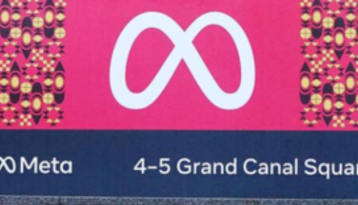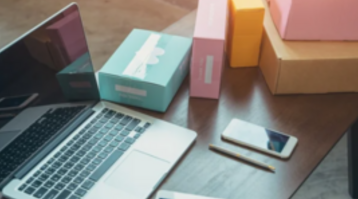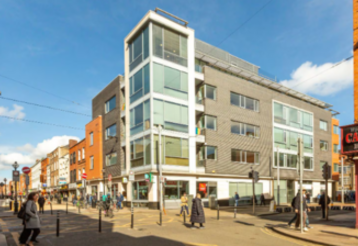Members
Veolia chief creating a virtuous circle

The environmental services giant's Irish boss predicts a new industrial revolution will benefit this country, writes Fearghal O'Connor
·
As Storm Emma raged across Ireland in March, Fergus Elebert sat in his kitchen with an array of laptops spread out across his table.
The Irish regional director of French environmental services giant Veolia had recently helped prepare a report about global trends - not least climate change - that will impact Ireland's water, waste and energy infrastructure between now and 2050.
Elebert, like many others, now found himself stuck at home because of a very stark example of the type of highly-disruptive weather event that scientists fear could be the ultimate result if the types of ideas contained in the Veolia report are not implemented.
But for Elebert he had more than just himself to worry about as the storm raged outside: with some of his key staff stuck in foreign airports he had to coordinate efforts to ensure that the water services provided by Veolia to 2.3 million people around the country continued to work.
"For the whole weekend my kitchen was like Nasa," he says. "The phone never stopped. I was feeding in regular reports from all of our plants to Irish Water for the National Emergency Coordination Group. A lot of the water treatment plants can be operated remotely. But in the bad weather access was still a problem for staff. For example, at wastewater treatment plants you need to get the sludge out. So I had to make requests for snow ploughs to be prioritised to let staff in four-wheel drives access plants in badly-hit areas."
None of the plants operated by Veolia had to close during the bad weather, he says proudly. But climate change, he says, is a very real threat for a company like Veolia.
"One of the things that we have learned is that you have to put robustness in at the design stage. And the guys who run our sites locally are always asking the question 'what if?' and we encourage them to do that. They come up with innovations to guard against the things that could happen."
The Veolia approach is built on decades of experience. Its roots stretch back 160 years to a water company in Napoleonic France. It has been in Ireland since 1990. Globally, it employs 168,000 and has a turnover of €25bn. It has 600 employees on the island of Ireland and turnover in excess of €120m, with growth over the next three years expected to be between 4pc and 5pc year-on-year.
"We are on track with that. We could probably grow faster but that is a sustainable growth rate and that is what is important."
"Sustainable" is a key word in the Veolia message, one that Elebert uses repeatedly in conversation and 58pc of the company's revenues in Ireland are from what Elebert describes as the "circular economy", which he says is no less than a brand new industrial revolution. Veolia sees it as an emerging business model that enables the economy to grow while minimising the amount of virgin resources extracted. The World Economic Forum has forecast that the circular economy will contribute $1 trillion a year globally by 2025 and that the adoption of what Veolia describes as a closed-loop system could add €1.65bn to Ireland's GDP as well as 5,000 jobs.
With its expertise in waste, water and energy, Veolia is on the front line for the changes to come. For example, the company operates a waste treatment plant in Fermoy, Co Cork, that has already developed just such a lucrative closed-loop system. It takes in difficult and hazardous waste streams, for example from the pharmaceutical sector, and uses a process called fractional distillation to separate out solvents and other waste products into individual compounds. These compounds can then be used to create fuel and other products to generate a revenue stream. The Fermoy plant can recover up to 45pc of the compounds it takes in and the company is undertaking research and development at other sites in France and the UK that could push this much closer to a 100pc "total recovery" model. It's a perfect example of the circular economy in action, says Elebert.
"Everyone wants to reuse and recycle now. Landfill is a no-no. Our technology can mine a waste stream and take the value out and that can be substantial. For example, we were able to look at the waste stream of one of our pharma clients here in Ireland and isolated a very rare and expensive chemical from it. Extracting it created a revenue stream for the pharma plant. Other pharma plants could use their own waste streams to create the fuel they need to power themselves entirely."
The principle can be applied to all forms of waste, says Elebert. In the UK, Veolia has major long-term domestic waste contracts and uses the food waste it collects as a raw material for fertiliser, while other waste is converted to energy. The whole operation is Veolia's biggest business in the UK. But, for now, at least, domestic waste is not a revenue-generator in Ireland.
"We got out of that business here years ago because of the way the business is structured here," says Elebert. "You need to have a stable supply of waste but the industry is deregulated and not conducive to that. We would not get a long-term contract and there is competition. If it changed would we be interested? Yes. But you need to have that constant supply if you are going to invest."
But there are plenty of other opportunities in Ireland for Veolia to be getting on with. It will likely bid for a range of projects in Irish Water's multi-billion euro capital plan in the coming years and last year won the contract for the extension to the huge Ringsend waste treatment plant.
The company also has a large number of utility maintenance contracts with industrial clients across Ireland, particularly in the pharmaceutical sector where it counts eight out of the 10 biggest players in the sector amongst its client base.
"When it comes to waste, energy and water, we can do everything and anything for them. For example, we run combined heat and power plants for some of the manufacturers to produce steam and electricity to ensure robustness of operations that run 24 hours a day, seven days a week."
The challenge for anyone supplying into the pharma sector, says Elebert, is to achieve absolute consistency and to be fully compliant with the tight regulations the sector operates under.
"These companies are also under pressure from a cost point of view because their drugs are coming off patent. They have to drive efficiency so that they can bring costs down so as to make it less attractive for the generic manufacturers to come into a particular market."
Food is another growth sector for Veolia in Ireland. It has just won a major maintenance contract with agri and dairy co-op Aurivo, that will include a complete analysis of the co-op's systems to identify potential energy efficiencies.
"That allows us develop a plan for the company around energy over the next three to five years and we can bring in waste and water expertise if necessary. Aurivo wants to concentrate on what it does well - making butter and other dairy products - and our expertise can allow them to do that more efficiently."
The analysis will ultimately break down for every product produced at the company's plants exactly how much steam, electricity, transport went into making that product.
"We can then compare this to data from similar plants around the world in which we are involved to show how sustainable it is and where they can achieve improvements. Once again, it is about the circular economy."
Veolia itself has not been immune to change in recent times and the shape of its Irish operation today is the product of French corporate machinations. "The only constant thing around here is change," says Elebert.
Elebert began his career as an apprentice electrician in the 1970s and progressed to engineering. He worked for various electrical contractors and other firms, including a major manufacturer of dairy equipment - an experience that is serving him well in his current role. He eventually took a role with the Irish operation of French company Dalkia, which itself was 70pc owned by Veolia and 30pc by giant French power company EDF.
"At the time Veolia was looking to expand Dalkia and EDF was not as keen on expansion. In July 2013 they came to a mutual agreement whereby Veolia bought Dalkia International and EDF bought Dalkia France."
Dalkia in Ireland was rebranded Veolia. Since 2015, Veolia itself has gone through its own internal restructuring to more closely align its three main business divisions: waste, energy and water.
"Our Dublin office was - and is - primarily energy-focused but we have water and waste people here now too. A lot of our water business is based in an office in Kilkenny and we have the waste transfer station in Fermoy."
As part of the internal restructuring, Veolia Transport - a fourth division of the company which held the contract to run and operate Dublin's Luas system - was divested along with the main Luas contract to transport firm Transdev.
"Veolia's goal in its restructuring was to focus on becoming an environmental company. Water, waste and energy all made sense but transport did not really fit in as neatly."
"As it happens though, if you are on the Luas, you will still see guys with Veolia high-vis vests because we still have a depot and infrastructure maintenance contract on the Luas."
For Elebert all the change has been very positive: "It has been an exciting time. There has been a lot of learning. I was from the energy business and I have had plenty to learn about waste and water."
And if Veolia's Imagine 2050 report about the challenges and opportunities facing this country and the rest of the globe is to be believed, the excitement - for better or worse - is only getting started.
Source: Independent.ie


